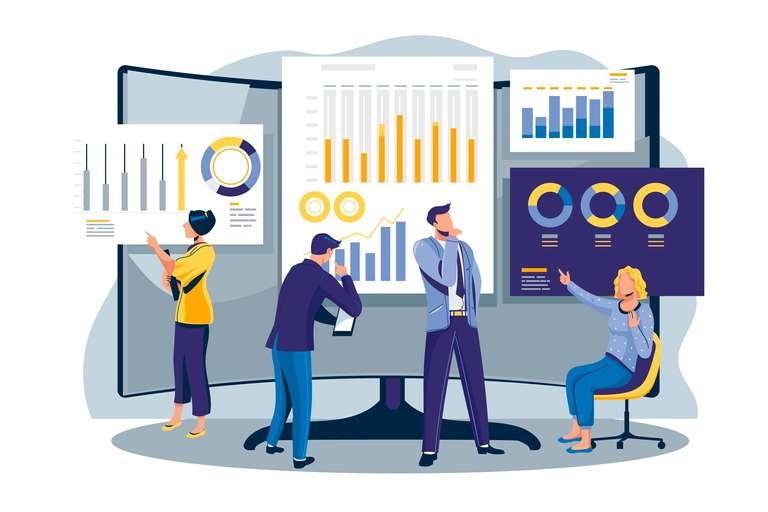AI for Digital Marketing: Benefits and Applications

Just a decade ago, the skepticism surrounding AI adoption in marketing was fairly high. The technology was relatively new, and marketers were unsure of its capabilities. They were also concerned about privacy issues associated with collecting data and the cost of AI-powered marketing initiatives.
Cut to 2023, and AI has slipped into almost every aspect of digital marketing. From AI tools running behind the scenes and automating several tasks to front-end AI chatbots enhancing customer experience, AI has made marketers' life simpler in many ways.
It does not come as a surprise then that more than 80% of industry experts use some or the other form of AI technology for online marketing. This is nothing short of an AI revolution in digital marketing!
In this blog, we will discuss the various applications and benefits of AI in digital marketing, along with its challenges and future scope.
Applications of AI in Digital Marketing
AI use cases in digital marketing are aplenty. Artificial intelligence reduces human intervention in various marketing aspects and helps digital marketers create a better marketing strategy.
Here are some applications of AI in digital marketing:
Predictive Analysis
AI tools can run through billions of internal and external data points to make accurate predictions of future outcomes and trends so marketers can make data-driven decisions. The predictions could be related to customer's future behavior, the likelihood of conversion, churn potential or future demand.
Marketers can use these insights to optimize their digital marketing strategy and get the best result for their business.
Chatbots
More than 80% of customers consider immediate response (ideally within 10 minutes) crucial when they have a marketing or sales query. Such expectations may be hard to meet for humans, but not for chatbot technology.
AI chatbots can handle multiple queries and provide instant responses 24/7. They can effectively guide the user through the sales funnel by asking relevant questions and offering personalized recommendations.
Personalization
AI tools can collect and analyze large volumes of data on customer behavior, demographic, likes, dislikes, interests, online activities, and more. Such insights can be used to personalize customer interaction and recommendations, increasing the chances of conversions.
Content Creation
Content creation can be challenging, especially video production. AI has simplified it by bringing automation and efficiency to the process. For example, script writing with ChatGPT has enabled marketers to create compelling video scripts that attract the target market.
Then, with the help of text to speech (TTS) technology, they can seamlessly transform the script into audio. It can serve as the audio component for your video content.
Content Curation
Not only content creation but content curation is also an important part of content marketing. AI tools can analyze vast amounts of data and user preferences to deliver relevant content to the right audience at the right time.
Such personalized content recommendations can enhance user engagement and sales for businesses.
Benefits of AI in Digital Marketing
AI capabilities and automation have helped brands and digital marketers save time and resources while streamlining their marketing efforts. Here are the various advantages of using artificial intelligence in digital marketing:
Helps Understand Audiences and Their Needs Better
AI tools analyze large volumes of customer data, helping marketers understand customer sentiment and preference, and predict their behavior. With such insights, marketers can personalize marketing campaigns for their targeted audience segments, thereby, improving their engagement.
Increase Efficiency
AI technologies automate several repetitive tasks such as data processing, handling repeat queries, lead nurturing, content creation, and social media marketing. By minimizing human intervention and streamlining workflows, AI makes the marketing process more efficient and reduces the waste of time and resources.
Improves Productivity
AI provides real-time data analytics and insights, empowering marketers to make more data-driven decisions. It leads to better resource allocation and more targeted marketing campaigns, improving lead generation and conversion for businesses.
Helps Achieve Better ROI
Through personalized marketing messages, predictive analysis, and automated content creation, AI maximizes the effectiveness of marketing campaigns. This helps marketers achieve better ROI on their marketing investments.
Helps Improve User Experience
AI-powered chatbots and virtual assistants can provide instant customer support, decreasing the response time for customers. They also provide personalized guidance and recommendation, increasing user satisfaction and brand loyalty.
Challenges of AI in Digital Marketing
While artificial intelligence has many applications and benefits, it is not without challenges. Most of these challenges revolve around data privacy and business adoption. Here are a few common AI challenges that digital marketers may face:
Data Privacy And Security
Artificial intelligence relies heavily on data, including personal and sensitive information. Businesses must ensure the privacy and security of customer data while leveraging AI for marketing. Many data protection and privacy regulations have been implemented worldwide to this effect.
One example is the GDPR 2018, which standardizes data protection laws across EU member states. Marketers must be aware of the regulations applicable to them and comply with the same.
Bias
AI models can sometimes give biased or discriminatory outcomes. For instance, digital advertising has been found to be biased towards certain genders or ethnic groups in the past.
Examples include showing career advertisements on STEM subjects more frequently to males than females or minorities receiving stricter credit conditions for loan approval.
Such biases often stem from a lack of diversity in data or biased algorithm design. It can be mitigated by training AI models on diverse and representative datasets and actively addressing bias during the development process.
Cost
Even though artificial intelligence can provide impressive ROI, the high initial investment can be a challenge for many. It can limit the potential application of AI, especially for small and mid-sized companies.
Businesses need to evaluate the potential benefits against the cost of implementing AI technology.
Future of AI in Digital Marketing
Artificial intelligence is already transforming the digital marketing landscape, and as the tech advances, its use cases are only likely to increase in the future.
Here are some areas where AI and machine learning algorithms can make a significant in the future:
Increased Personalization
With the rise of deep learning algorithms and natural language processing (NLP) capabilities, AI personalization is bound to improve even more in the future. Deep learning technology enables AI systems to understand customer behavior and preferences better. Similarly, NLP allows a more accurate interpretation of human language and sentiments.
By leveraging these capabilities, AI tools can provide highly personalized experiences to users.
Voice Search Optimization
The popularity of voice-based interaction is rapidly growing. Marketers need to be cognizant of this fact and optimize their content for voice search. AI and machine learning technology can help marketers identify keywords and phrases used in voice searches and optimize their online content accordingly.
It will play a crucial role in reaching and engaging a growing number of voice search users.
Augmented Reality
Augmented Reality(AR) is another exciting development of artificial intelligence in marketing. AR technology can create a highly immersive and interactive experience by blending the real and virtual worlds.
By using AR technology, marketers can allow potential customers either to visualize products in their environment or try virtual samples before buying. It opens up new avenues for marketers to demonstrate their products and drive better brand engagement.
Wrapping Up
There is no doubt that artificial intelligence has a promising future in digital marketing. AI tools have now become fundamental for marketers to simplify their operations and enhance customer satisfaction. Their ability to predict outcomes and personalize customer experiences has provided significant benefits to brands and helped them deliver better ROI.
However, challenges such as customer data privacy and AI biases cannot be overlooked. Marketers must address these concerns and ensure the responsible and ethical implementation of AI in marketing.
Looking forward, AI developments, such as voice search optimization and augmented reality, are set to bring even more exciting opportunities for businesses to engage with customers in innovative ways.
FAQs
1. What is AI in digital marketing?
Artificial intelligence (AI) in digital marketing refers to the use of smart technology that imitates human intelligence to streamline marketing strategies for brands. AI algorithms help marketers understand customers better, personalize interactions, automate tasks, and predict future trends. With it, they can better satisfy customers and convert them to loyal customers.
2. What are some examples of AI in digital marketing?
Some examples of artificial intelligence in Digital Marketing include:
Chatbots for instant customer support
AI algorithms that provide personalized product recommendations based on user preferences
Predictive analytic tools that forecast customer behavior and product demand
Automated content marketing
3. Is AI in digital marketing expensive?
Some businesses may find the initial AI implementation cost expensive. However, AI can also provide an impressive return on investment by improving efficiency, personalization, and targeting.
Companies may need to compare potential benefits against the cost to fully understand the implication of adopting artificial intelligence.



